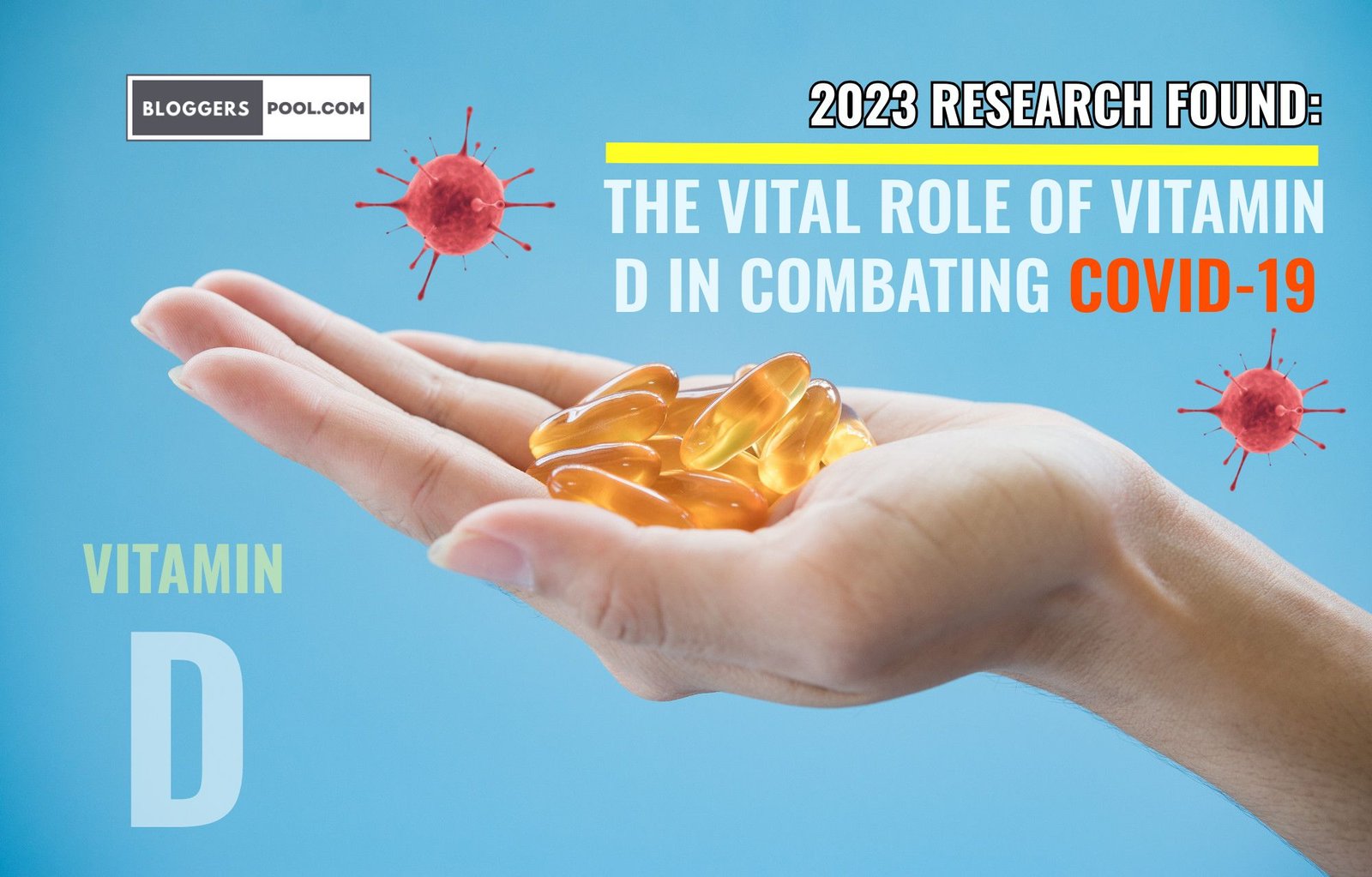The Vital Role of Vitamin D in Combating COVID-19
In the quest to understand the complex dynamics of 2023 Research found: The Vital Role of Vitamin D in Combating COVID-19, emerging studies continue to shed light on various factors that can impact its severity and mortality rates. One such critical factor that has gained significant attention in recent research is the link between vitamin D deficiency and higher COVID-19 mortality rates. In this comprehensive article, we explore the substantial evidence supporting the importance of maintaining 2023 Research found: The Vital Role of Vitamin D in Combating COVID-19 in the fight against COVID-19.

Understanding the China Study
The Correlation
The study conducted in China presents compelling evidence of a correlation between vitamin D deficiency and higher COVID-19 mortality. This correlation is based on a thorough analysis of COVID-19 patients, their vitamin D levels, and their clinical outcomes. The results strongly suggest that individuals with insufficient levels of vitamin D are more susceptible to severe COVID-19 infections, with an increased risk of mortality.
The Mechanism
But what makes vitamin D such a crucial player in this battle? The answer lies in its multifaceted role within the human body. Vitamin D acts as a hormone that regulates various physiological processes, including the immune system. Its ability to modulate immune responses is of particular importance when dealing with viral infections like COVID-19.
Importance of Sun Exposure
Natural Source of Vitamin D
The primary source of vitamin D for the human body is sunlight. When exposed to UVB rays, the skin synthesizes vitamin D, making sunlight an invaluable resource in maintaining optimal levels.
Seasonal Variations
It’s essential to note that vitamin D deficiency is often more prevalent in regions with limited sunlight exposure, especially during the winter months when people spend less time outdoors. In such regions, supplementation and dietary sources of vitamin D become even more critical.
Dietary Sources and Supplementation
Fortified Foods
To ensure an adequate intake of vitamin D, it’s advisable to incorporate vitamin D-rich foods into your diet. These include fatty fish, egg yolks, and fortified dairy products.
Supplements
In cases where natural sources and diet fall short, supplements are a viable option. Vitamin D supplements are readily available and can be prescribed by healthcare professionals based on individual needs.
As we navigate the ongoing challenges posed by COVID-19, it becomes increasingly evident that maintaining optimal vitamin D levels is a crucial aspect of our defense against the virus. The China study provides compelling evidence of the link between vitamin D deficiency and higher COVID-19 mortality, highlighting the importance of regular sun exposure, dietary choices, and supplementation.
Incorporating these measures into our daily lives can play a vital role in reducing the severity of COVID-19 infections and, ultimately, saving lives. It is imperative that we prioritize our health by ensuring that our bodies receive an adequate supply of this essential vitamin, thereby strengthening our immunity in the battle against COVID-19.
The Global Impact
The findings of the China study have far-reaching implications globally. Understanding the relationship between vitamin D and COVID-19 outcomes has prompted healthcare professionals, researchers, and policymakers worldwide to reconsider strategies for combating the virus.
Public Health Measures
In light of the evidence, public health organizations have been urging people to be proactive about their vitamin D levels. Recommendations include spending time outdoors in sunlight, especially during the sunnier months, to help maintain adequate levels of this essential vitamin.
Risk Groups
Certain populations are more susceptible to vitamin D deficiency and severe COVID-19 outcomes. These include:
Aged Individuals
As people age, their skin’s ability to synthesize vitamin D decreases, making older adults more prone to deficiency.
People with Darker Skin
Individuals with darker skin pigmentation require more extended sun exposure to produce sufficient vitamin D, putting them at greater risk, especially in regions with limited sunlight.
Those with Underlying Health Conditions
People with chronic illnesses or conditions that affect fat absorption in the gut, such as Crohn’s disease, celiac disease, or obesity, may have difficulty absorbing vitamin D from dietary sources, further increasing their vulnerability.
Ongoing Research
While the China study has provided essential insights into the role of vitamin D in COVID-19, ongoing research continues to explore this connection further. Scientists are investigating optimal vitamin D levels for COVID-19 protection and the potential benefits of vitamin D supplementation in high-risk populations.
Taking Action
Given the mounting evidence, it’s crucial for individuals to take proactive steps to ensure they have adequate vitamin D levels, particularly during the ongoing pandemic. Here are some practical steps:
1. Sun Exposure
- Spend time outdoors, preferably during the sunniest hours of the day, to allow your skin to produce vitamin D naturally. Just 15-30 minutes of sunlight on your face, arms, and hands can make a significant difference.
2. Dietary Choices
- Incorporate vitamin D-rich foods into your diet, such as salmon, mackerel, sardines, egg yolks, and fortified dairy products.
3. Supplements
- Consult with a healthcare professional to determine if vitamin D supplementation is necessary for your specific needs. They can recommend the appropriate dosage based on your age, health status, and geographical location.
4. Regular Check-ups
- Schedule regular check-ups with your healthcare provider to monitor your vitamin D levels. This will help ensure that you are maintaining the optimal range.
In Conclusion
The link between vitamin D deficiency and higher COVID-19 mortality, as demonstrated by the China study, underscores the importance of this essential nutrient in our fight against the pandemic. While there are many factors at play in the battle against COVID-19, optimizing your vitamin D levels is a simple yet effective step you can take to bolster your immune system.
As the world continues to grapple with the challenges posed by the virus, it’s crucial to prioritize your health by embracing the recommendations outlined in this article. By doing so, you can enhance your resilience against COVID-19 and contribute to a healthier, more robust global response to the pandemic. Remember that your health is a valuable asset, and investing in it can make a world of difference in these uncertain times.

3 thoughts on “2023 Research found: The Vital Role of Vitamin D in Combating COVID-19”